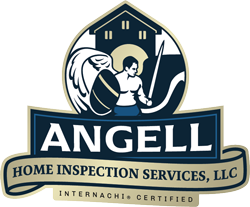Finding Mold During a Home Inspection
You finally found the home of your dreams and it’s perfect, at least in your mind. Next, is the inspection and the discovery that it has mold, Now what? This is an all all-too-common nightmare for prospective homeowners, but it does not have to mean the end of the purchase.
What is Mold?
Mold is a type of fungus that sprouts from microscopic spores floating in the air. When clusters of mold spores grow on surfaces, they start to reproduce and become visible to the human eye. All homes have the key ingredients needed for mold growth: the presence of mold spores, a surface for it to grow on, oxygen, warmth, and darkness. When you add moisture, whether from a water leak, stagnant water, or high levels of humidity, into the mix, that’s where mold problems begin. Knowing where mold is commonly found in homes can help you prevent and treat it so you can keep your home and body healthy.
Finding Mold During Your General Inspection
It is always a good idea to pay attention during a home inspection and ask questions as it is progressing. If the inspector finds a moisture issue or mold, it is important to find out the source, the extent of the problem, and the possibilities of remediation. While home inspectors are usually generalists and that a mold specialist will need to be called in, you will still get a feel for the extent of the problem.
Bringing in an Expert
If your inspection report raises any concerns about mold, you can ask the seller for some additional time to bring in a mold removal technician to get a thorough testing and estimate for remediation. If possible, it is always a good idea to get quotes from two or three companies to compare the results and quotes. As with the general inspection, try to be on-site as they complete their assessment so you can see the issues first-hand and gain knowledge on how they will be resolved.
Negotiating The Cost
If you decide that the mold can be remediated to your satisfaction, you can now work with your realtor to find the best resolution. The sellers may remedy the situation themselves or you can renegotiate the total selling price to offset the costs. There are pros and cons to both. Because sellers will no longer be living there, they may tend to cut corners or go with a lesser-priced mediation company that you would not choose. Accepting a credit does give you control over the remediation but it will take time and hassle.
Remediation
The best possible scenario is to get the mold problem under control and all traces removed before actually moving in. This will allow your mold remediator to have plenty of space to perform any needed repairs and you’ll avoid the hassle of trying to move boxes and furniture into your new home while crews are at work getting rid of the mold.
The Bottom Line
Purchasing a home with known mold is a personal choice. If mold is found during the general inspection, it is important to follow up with a mold remediation expert.
Please contact Angell’s Home Inspection in Connecticut. With over 30 years of experience, this 5-star Google-rated inspection company can help you make informed decisions about your potential new home Please call (860) 402-6644 or learn more at https://www.angellhomeinspections.com.




